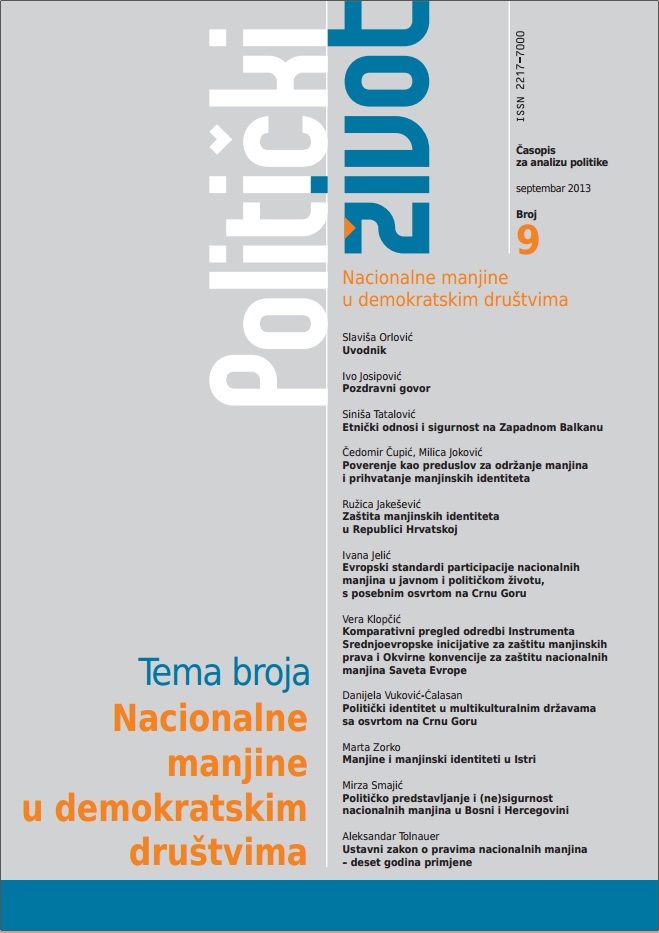Politički identitet u multikulturalnim državama sa osvrtom na Crnu Goru
Political identity in multicultural countries with reference to Montenegro
Author(s): Danijela Vuković-ĆalasanSubject(s): Inter-Ethnic Relations, Ethnic Minorities Studies
Published by: Fakultet političkih nauka Univerziteta u Beogradu
Keywords: Political identity; nationality; civic identity; ethnocultural pluralism; multiculturalism
Summary/Abstract: The problem of building and shaping political identity in multicultural societies is actualized by the politicization of cultural tendencies and „pluralism of identity“ of the late twentieth century. The issue of a common identity, its redefining and adapting to the new reality of complexed ethno-cultural pluralism, became open even for traditional, consolidated liberal democracies. The post-communist societies in transition are facing the need for designing the new political identities in the process of building the state and nation, in the complexed internal circumstances. As a civic state by its Constitution, Montenegro has decided to build a common political, ethnic and national identity, based on strengthening the legal and political, rather than cultural and ethnic components of its structure. The foundation of national identity on the civic principle is particularly important for societies with strong ethno-cultural pluralism, in which the particular (ethno) national identities are still present, such as Montenegrin. It is necessary, therefore, to build the common identity, as well as wide enough so the members of different ethnic and cultural communities can identify with it and develop a sense of belonging and loyalty to the nation-state identity. The politicization and political instrumentalization of the ethnic and national identity in terms of an unfinished process of individualization and value transition process in general, make the consolidation of the common political identity difficulty. Civic, liberal-democratic national identity is a good framework for the realization of both individual as well as collective rights, thus it is, by its nature, inclusive and open to the ethno-cultural distinctiveness, but also due to the fact that emphasizes the primacy of the individual over the community. It`s equally important, in line with the need for recognition of different cultural and ethnic identity of national and ethnic minorities, to develop collective rights too to the extent that will not disintegrate common, political, ethnic and national identity. That is, relying on the arguments of the multiculturalists, a necessary condition for the recognition of an individual’s identity and respect of its rights and freedoms. In this way, implementation of the rights of ethno-cultural communities to preserve and recognize their identity as well as equal and fair access to public space, become no less important, than the need to strengthen common political identity.
Journal: Politički život
- Issue Year: 2013
- Issue No: 9
- Page Range: 75-94
- Page Count: 20
- Language: Serbian

